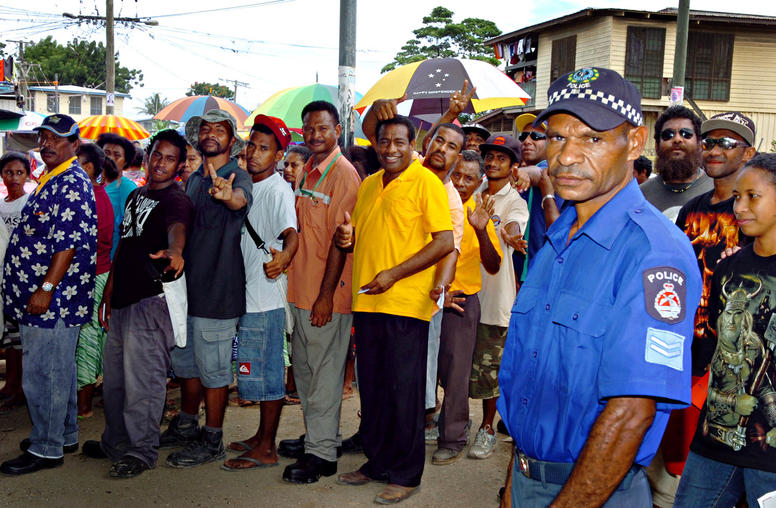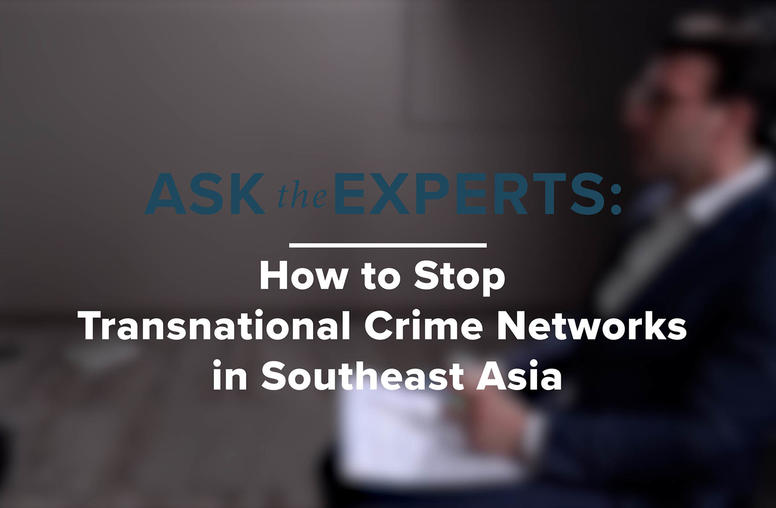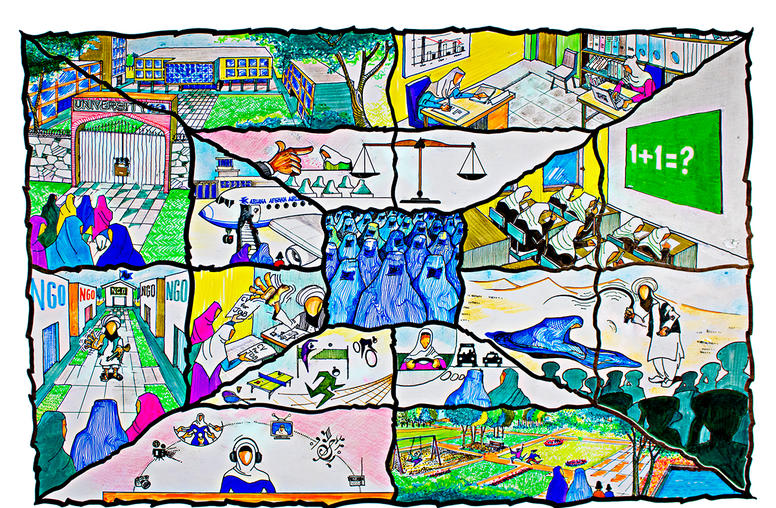Innovation and Technology in Rule of Law Programming
Enforcement, Engagement, and E-Governance
Questions about the promises and dangers of technology have recently dominated headlines—but less often covered are the stories of practitioners and start-ups leveraging their know-how to build peace. On May 31, the Justice Sector Training, Research and Coordination Program and the U.S. Institute of Peace hosted a symposium to tackle the difficult questions of how technology can be used to strengthen rule of law, security, community engagement, and relationships between states and the people they serve in developing and conflict-affected areas.
This included a series of expert panels on technology and rule of law, and an exciting networking session with local entrepreneurs that are driving technology forward to meet peacebuilders' needs. Review the conversation on Twitter with #RuleofLawTech.
Welcoming Remarks
Nancy Lindborg
President, United States Institute of Peace
Harry Bader
Acting Executive Director, U.S. Global Development Lab, U.S. Agency for International Development
Hamid Khan
Deputy Director, Rule of Law Collaborative, University of South Carolina
Session One: Innovations in Law Enforcement: Digital Investigative Analysis & Forensic Science: Advances and Setbacks
Lindsay Freeman, Moderator
Human Rights Center Research Fellow, School of Law, University of California, Berkeley
Mark D. Mogle
Deputy Assistant Director for Forensics, International Criminal Investigative Training Assistance Program, U.S. Department of Justice
Mark Grantz
Assistant to the Special Agent in Charge, Washington Field Office, U.S. Secret Service
Joe Varani
Digital Investigative Analyst, Cybercrime Lab, U.S. Department of Justice
Exhibitors
- C5, Representing the PeaceTech Accelerator
- groundTruth global
- Hala Systems
- International Centre for Missing and Exploited Children
- Keshif
- Mark Labs
- PeaceTech Lab
Keynote Address
Luis C. deBaca
Former Ambassador-at-Large to Monitor and Combat Trafficking in Persons and Former Director Office of Sex Offender Sentencing, Monitoring, Apprehending, Registering, and Tracking (SMART) U.S. Department of Justice
Session Two: Innovations in Engagement: From Mobile Apps to Social Media
Rohini Srihari, Moderator
Chief Data Scientist, PeaceTech Lab
Jeffrey Aresty
President, InternetBar.org
Karen Naimer
Director, Program on Sexual Violence in Conflict Zones, Physicians for Human Rights
Antoine Heuty
Founder and CEO, Ulula LLC
Zaid Zaid
Public Policy, Strategic Response, Facebook, Inc.
Session Three: Innovations in E-Governance: From Case Management to Consensus Building
Andrew Solomon, Moderator
Senior Rule of Law Advisor, U.S. Agency for International Development
Jeff Apperson
Vice President, National Center for State Courts
Julia Glidden
General Manager, IBM Global Business Services - Global Government Industry
Nino Vardosanidze
Senior Legislative and Oversight Manager, Good Governance Initiative, Tetra Tech ARD (Republic of Georgia)



